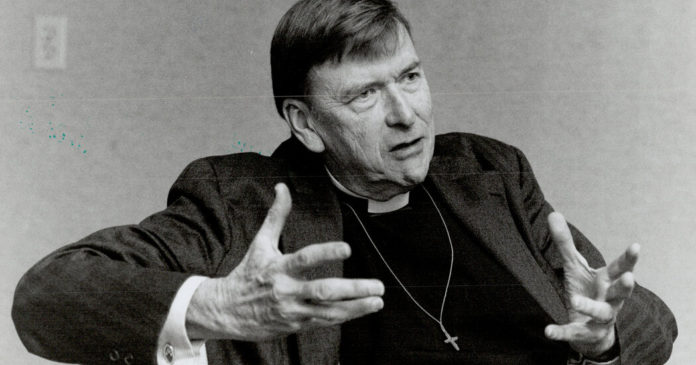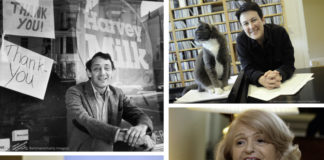
That year he ordained Robert Williams, an openly gay man, as a priest. (Ellen Barrett, a lesbian, had been ordained about a decade before.) Bishop Spong understood the controversy he was stirring — in fact, he invited every Episcopal bishop in the country to attend.
Nine months later he was censured by his colleagues, but he continued to ordain gay and lesbian priests — at least 35 by the time he retired in 2000, he claimed, including Bishop Perry. The church eventually followed his lead: In 1996 an Episcopal court ruled that homosexuality was not counter to its principles, and in 2015 the church recognized same-sex marriage.
If Bishop Spong’s position on women and L.G.B.T.Q. clergy put him on the edge of the mainstream, his theological views put him well outside it. He taught that the Gospels should be considered artistic interpretations of Jesus’ life, not literal accounts of it, and he called on Christians to reject ideas, like original sin, that could not be explained by science.
Those views, even more than his social activism, attracted millions of followers, as well as countless critics. Writing in National Review in 1988, William Murchison called Bishop Spong “the latest in a long line of right reverend goofballs,” chastising him for calling on the church to bend toward modern society rather than the other way around.
Traditionalists especially disliked his take-no-quarter approach, which they felt made it difficult to have a dialogue.
“He always pushed the envelope, in effect made it hard for other points of view to coexist,” Paul F.M. Zahl, a retired Episcopal priest, said in an interview. “You sort of felt you were being told to grow up, that he was preaching an adult version of Christianity.”
Bishop Spong’s aggressive liberalism frequently got him in trouble. After a prominent Nigerian bishop attempted to exorcise the “homosexual demons” from a gay priest at an Anglican conference in 1998, Bishop Spong denounced African Anglicans as backward.







